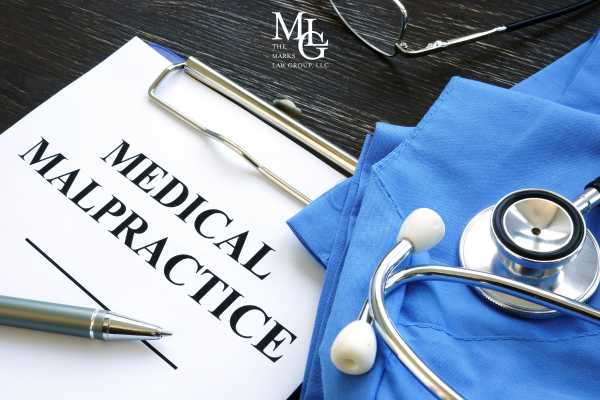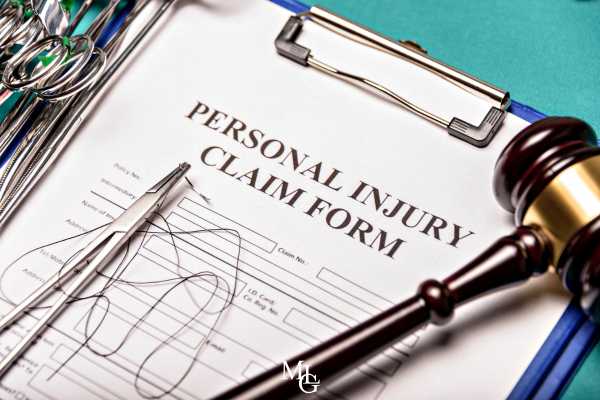Determining if you have a medical malpractice claim can be a complex and daunting task. Medical malpractice occurs when a healthcare provider's negligence causes harm to a patient, whether through misdiagnosis, surgical errors, medication mistakes, or failure to provide appropriate treatment. Recognizing the signs of medical malpractice is crucial for protecting your health and securing the compensation you deserve for any harm suffered.
If you suspect that you or a loved one has been a victim of medical malpractice, it is essential to act quickly. Consulting with a qualified medical malpractice attorney in Decatur can provide you with the guidance and support needed to navigate the legal process and determine the strength of your case.
Don’t let medical negligence go unchecked—contact our experienced team today at (678) 251-9309 for a free consultation and learn how we can help you pursue the justice and compensation you deserve.
Key Elements of a Medical Malpractice Claim in Georgia
To determine if you have a medical malpractice claim in Georgia, it's crucial to understand the key elements involved. These elements include proving a breach of the standard of care, demonstrating that the breach caused harm, and showing that the harm led to specific damages.
Duty of Care
In Georgia, as in other states, healthcare providers are expected to adhere to a standard of care that is consistent with what other reasonably competent providers would do under similar circumstances. This duty of care applies to doctors, nurses, hospitals, and other medical professionals.
Breach of Duty
To have a valid medical malpractice claim, you must demonstrate that the healthcare provider breached their duty of care. This means proving that the provider's actions or omissions deviated from the accepted medical standards. Examples of breaches include misdiagnosis, surgical errors, improper treatment, and failure to diagnose a condition in a timely manner.
Causation
Causation is a crucial element in a medical malpractice claim. You must establish that the breach of duty directly caused your injury or worsened your condition. This often requires detailed medical evidence and expert testimony to connect the provider's negligence to the harm you suffered.

Damages
Finally, you must show that the breach of duty resulted in specific damages. These can include physical injuries, emotional distress, additional medical expenses, lost wages, and other related costs. Documenting these damages is essential for calculating the compensation you may be entitled to receive.
By understanding these key elements, you can better evaluate whether you have a viable medical malpractice claim in Georgia.
Signs You May Have a Medical Malpractice Claim
Recognizing the signs of potential medical malpractice is essential in determining if you have a claim. Common indicators include unexpected complications, misdiagnosis, lack of informed consent, and inadequate follow-up care.
Injury or Worsening Condition
If you experience a new injury or a significant worsening of your existing condition following medical treatment, this could be a sign of medical malpractice. This might include complications after surgery, severe reactions to medication, or deterioration due to delayed diagnosis or treatment.
Failure to Diagnose
When a healthcare provider fails to diagnose a serious condition, or misdiagnoses you, leading to incorrect or delayed treatment, it can result in severe consequences. If you suspect that a diagnosis was missed or incorrect, it might indicate negligence.
Inappropriate Treatment
Receiving treatment that is not suitable for your condition, or deviates significantly from accepted medical standards, can be a sign of medical malpractice. This includes unnecessary surgeries, incorrect medications, or inadequate post-operative care.
Lack of Informed Consent
Before undergoing any medical procedure, you should be fully informed about the risks, benefits, and alternatives. If a healthcare provider fails to provide this information, and you suffer harm as a result, you may have grounds for a medical malpractice claim due to lack of informed consent.
Unusual or Unexpected Complications
While some medical complications are inherent risks, others may arise from substandard care. If you experience complications that seem unusual or were not clearly communicated as potential risks, it could indicate negligence on the part of your healthcare provider.
Disregard for Patient Concerns
If your healthcare provider dismisses your symptoms, concerns, or requests for additional tests without appropriate consideration, and this leads to harm, it could be a sign of medical malpractice. Effective communication and attentiveness are essential components of standard medical care.
Recognizing these signs is crucial for protecting your health and legal rights. If you suspect that you have been a victim of medical malpractice, it is important to seek a professional evaluation to determine if you have a viable claim. Contact our experienced medical malpractice attorneys today for a free consultation and learn how we can help you seek the justice and compensation you deserve.
Steps to Take If You Suspect Medical Malpractice
If you suspect medical malpractice, it's crucial to take immediate action to protect your rights. Key steps include seeking a second medical opinion, gathering all relevant medical records, and consulting with a qualified medical malpractice attorney.
- Seek a Second Opinion: If you suspect medical malpractice, it is crucial to seek an independent medical evaluation. A second opinion can provide a different perspective on your diagnosis, treatment, or the standard of care you received. This step is vital to determine if your initial healthcare provider's actions deviated from accepted medical practices.
- Gather Evidence: Collect all relevant medical records, including treatment notes, test results, and any correspondence with healthcare providers. Documentation of your symptoms, treatments, and interactions with medical professionals can be invaluable. Photographs of physical injuries and copies of prescriptions or medication labels can also serve as important evidence.
- Keep a Detailed Record: Maintain a detailed journal of your medical experiences. Note any new symptoms, changes in your condition, and how your daily life is affected. Record all interactions with healthcare providers, including dates, times, and summaries of conversations. This detailed record can help establish a timeline and provide context for your claim.
- Avoid Discussing Your Case: Refrain from discussing your potential medical malpractice claim with anyone other than your attorney. Sharing details with others could compromise your case. Be particularly cautious about posting information on social media, as these posts can be used against you in legal proceedings.
- Speak With a Medical Malpractice Attorney: Prepare for a consultation with an injury attorney as soon as possible. An attorney can evaluate your case, help you understand your legal rights, and guide you through the complex process of filing a claim. They can also assist in obtaining expert medical testimony to support your case.
- File Your Claim Promptly: Medical malpractice claims are subject to statutes of limitations, which vary by state. In Georgia, you generally have two years from the date of the injury to file a claim. However, certain circumstances can affect this timeframe, so it is essential to act quickly to ensure you do not miss important deadlines.

By following these steps, you can protect your rights and build a strong case if you suspect medical malpractice. If you believe you have been a victim of medical negligence, contact our experienced medical malpractice attorneys today for a free consultation. We can help you navigate the legal process and pursue the compensation you deserve.
How Long Do You Have to File a Medical Malpractice Claim in Georgia?
In Georgia, the statute of limitations for filing a medical malpractice claim is generally two years from the date the injury or death occurred. This means you have two years to initiate legal action from the moment you were harmed due to a healthcare provider's negligence. However, there are important nuances and exceptions to this rule that you should be aware of.
Discovery Rule
If the injury is not immediately apparent, the "discovery rule" may apply. This rule allows you to file a claim within two years from the date you discovered, or reasonably should have discovered, the injury. However, even with the discovery rule, there is an absolute deadline, known as the statute of repose, which is five years from the date the malpractice occurred.
Exceptions for Minors
For minors under the age of five, the statute of limitations does not begin until the child turns five years old, giving them until their seventh birthday to file a claim. For minors older than five, the standard two-year limit applies.
Fraudulent Concealment
If the healthcare provider fraudulently concealed the malpractice, the statute of limitations may be extended. In such cases, you have two years from the date the malpractice was discovered or reasonably should have been discovered, with the maximum time limit still being five years from the date of the malpractice.
Understanding these time limits is crucial for ensuring you do not forfeit your right to seek compensation for medical negligence.
Get Help With a Medical Malpractice Claim, Call Marks Law Group Today
Navigating the complexities of a potential medical malpractice claim can be overwhelming, but understanding the key elements and signs of malpractice is the first step in seeking justice. If you suspect that you or a loved one has been a victim of medical negligence, it is crucial to take action promptly to protect your rights.
At Marks Law Group, our Decatur injury attorneys help individuals like you uncover the truth and secure the compensation you deserve. Contact us today for a free consultation, and let our experienced medical malpractice attorneys guide you through the process. Don’t wait—reach out now to discuss your case and explore your legal options.
